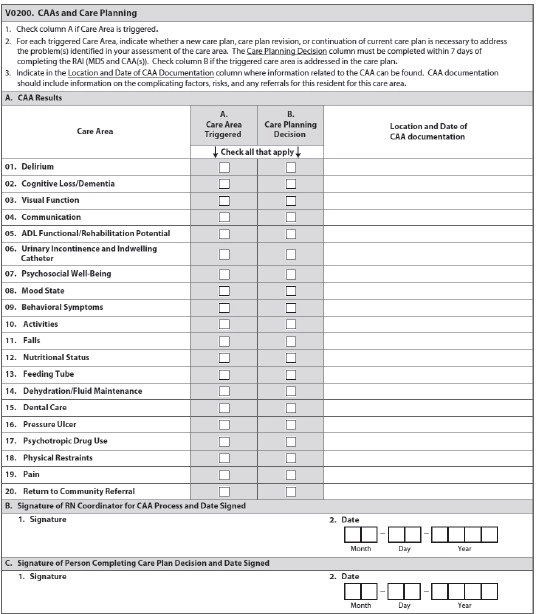Delve Deeper Into Those CATs
Don’t expect your MDS software to do all the work for you.
Being able to understand, interpret and double-check all the triggered areas in the Care Area Assessment (CAA) process is critical to enable you to complete a solid care plan for each resident. There is little or no help forthcoming from either the Resident Assessment Instrument (RAI) Manual or the MDS software. Use these pointers from the experts to construct a compliant and well thought out care plan.“Interpreting and addressing CAAs is the basis for the development of individualized care plans,” said Patsy Strouse, RN, the RAI Coordinator for Ohio, in a recent presentation. And each CAA will contain a list of items and responses from the MDS that serve as the triggers for review, called Care Area Triggers (CATs).
The RAI manual contains a list of 20 CAAs:
How Critical Thinking Comes into Play
“Critical thinking is the ability to think clearly and rationally,” Strouse stated. “It includes the ability to engage in reflective and independent thinking.” When you have critical thinking skills, you are able to:
Employing the disciplined manner of thought that is critical thinking in the CAA review will help you to determine whether to go to the care planning stage.
And to promote critical thinking, Strouse recommended utilizing the following questions:
Bottom line: Exercising critical thinking skills will help you to delve deeper into those CATs, better analyze the CAAs identified from the MDS, and ultimately develop a more complete and comprehensive care plan.


